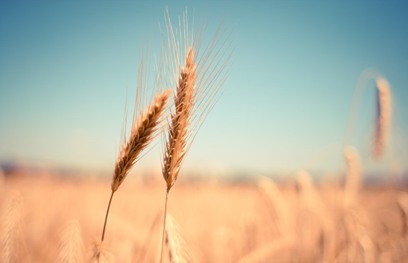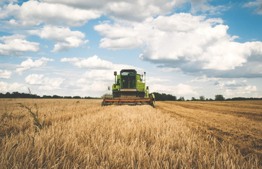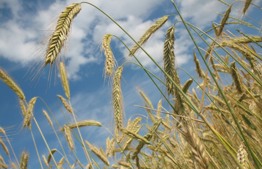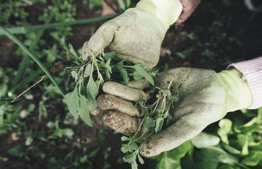Matanot Aniyim: Chapter 6: Laws of Chadash

A brief overview of the laws of chadash. Rabbi Eyal Ben David, updates by Rabbi Moshe Bloom
A. Overview[1]
- It is forbidden to partake of the harvest from the five grains that grew prior to 16 Nissan. These grains can be eaten only after 16 Nissan, the day the omer sacrifice is offered.[2]
- Now that the Temple is not standing, it is forbidden to partake of the new (=chadash) harvest until 17 Nissan (outside the Land of Israel, the new harvest is only permitted from 18 Nissan[3]
- The general consensus among rabbis in Israel is that the prohibition of chadash is biblical and applies in all places—inside and outside the Land of Israel; for all time—whether or not the Temple is standing; and to all grains—whether belonging to Jew or gentile. However, there are rabbis in the Diaspora who are lenient regarding produce from outside the Land of Israel.[4]
- Any grain that took root prior to the day of the omer offering is permitted to eat after this day. The accepted ruling as far as chadash is concerned, is that it takes three days to take root and not 14. Grain that did not take root prior to the day of the omer offering, even if planted beforehand, is prohibited for consumption until 17 Nisan the following year.[5]
- Grain harvested prior to the day of the omer offering—even processed grains that have been cooked or baked—are permitted only on 17 Nisan.[6]
B. The current situation
According to data from Israel's Central Bureau of Statistics (2017),[7] 99% of grain consumption in Israel is imported, while only 1% is made in Israel. Avoiding the prohibition of consuming new grain necessitates supervision of the grains imported to Israel, whether for consumption as food products, or for beer and grain-based alcoholic beverages (whiskey and the like). Similarly, kashrut supervision is required for food products that including grain, beer included (aside for the problem of bishul nochri and other possible kashrut-related issues). Of course, the Rabbinate supervises crops growing in Israel.
C. Practical halacha
- A product bearing kashrut certification from a kashrut organization abroad is inspected by the Chief Rabbinate of Israel. If it passes this inspection, this means that the product is kosher and there is no concern of it including new grain, whereupon it receives the Chief Rabbinate's certification. If so, even if the product does not specify ללא חשש חדש (no concern of chadash), the Rabbinate's certification attests to the product's kosher status, its chadash-free status included.[8]
- If a product bears a kashrut certification of an organization abroad, but does not state "באישור הרבנות הראשית לישראל" (with the approval of the Chief Rabbinate of Israel), this means that Israel's Chief Rabbinate did not approve the product. This could include the issue of chadash or other kashrut-related problems.
[1] Written by Rabbi Eyal Ben David, published in Emunat Itecha 99 (5773), pp.155–156; minor changes and updates added by Rabbi Moshe Bloom. See also the article (English) by Rabbi Yaakov Epstein, "The prohibition of chadash in Israel today: a review," Emunat Itecha 36 (5760), pp. 48–51. See also Rabbi Itzhak Dvir, "The prohibition against eating chadash," Emunat Itecha 123 (5779), 142–144.
[2] Rambam, Hilchot Ma'achalot Asurot 10:2.
[4] The Rambam (ibid.) and Shulchan Aruch (YD, §293:2; OC, §489:10) are stringent in the matter.
The Rema (YD §293:3) is lenient due to sefek-sefeka (double doubt), however, he implies that if it is clear that the grains are chadash, they would be forbidden for consumption. He adds that in places where the vast majority of the grains are chadash (and it is clear that people will not avoid eating it when told that it is forbidden), it is best not to say anything since it is preferable that people transgress inadvertently rather than intentionally.
The Bach (YD §293 and Responsa Bach Hachadashot §48–49), who sought to find a basis for the prevalent custom throughout the Disapora to eat chadash, was lenient with regard to new grain grown by non-Jews;
the Taz (YD, 293:4) was lenient due to extenuating circumstances (she'at hadechak).
Several Rishonim are lenient, holding that chadash growing outside the Land of Israel is only prohibited due to a enactment of the Sages, and even then only in the countries in close proximity to the Land of Israel, such as Babylonia and Egypt.
The Gra, however, is stringent: Be'ur HaGra YD §293:2. The Mishnah Berurah (§489:45) writes that despite the fact that the majority of Jews are lenient with the prohibition of chadash, one with a refined soul should be stringent as much as possible.
Note that chassidim tended to be lenient with the chadash prohibition outside the Land of Israel.
Outside of Israel there are countries and regions that have both summer and winter crops for their grain. For winter crops grown in the northern hemisphere, there is no issue with chadash; even if they are harvested prior to the omer offering, by the time they reach the market it will be after 16 Nissan, which will render them permissible. In contrast, summer crops, planted after Pesach and harvested in late summer will be considered chadash. It is extremely difficult to avoid eating chadash in the southern hemisphere, because from October the vast majority of the produce available in the market is chadash, planted during the winter!
[7] Most Israeli produce is exported; see Israel's Central Bureau of Statistics, Food Balance Sheet 2017, pp. 16, 30–31. While the official data for wheat and rice are listed together, the chadash prohibition, of course, does not apply to rice. Note that from 2017, corn is included in the report under "grains" and not "vegetables" (see p. 17 of the report). In 2016, imports accounted for approximately 92% of the grains. See the report, pp.16,30-31.
[8] The Chief Rabbinate's guidelines for importers can be found here (Hebrew). See pages 6 and 25, where the rabbinate prohibits import of chadash produce to Israel.




